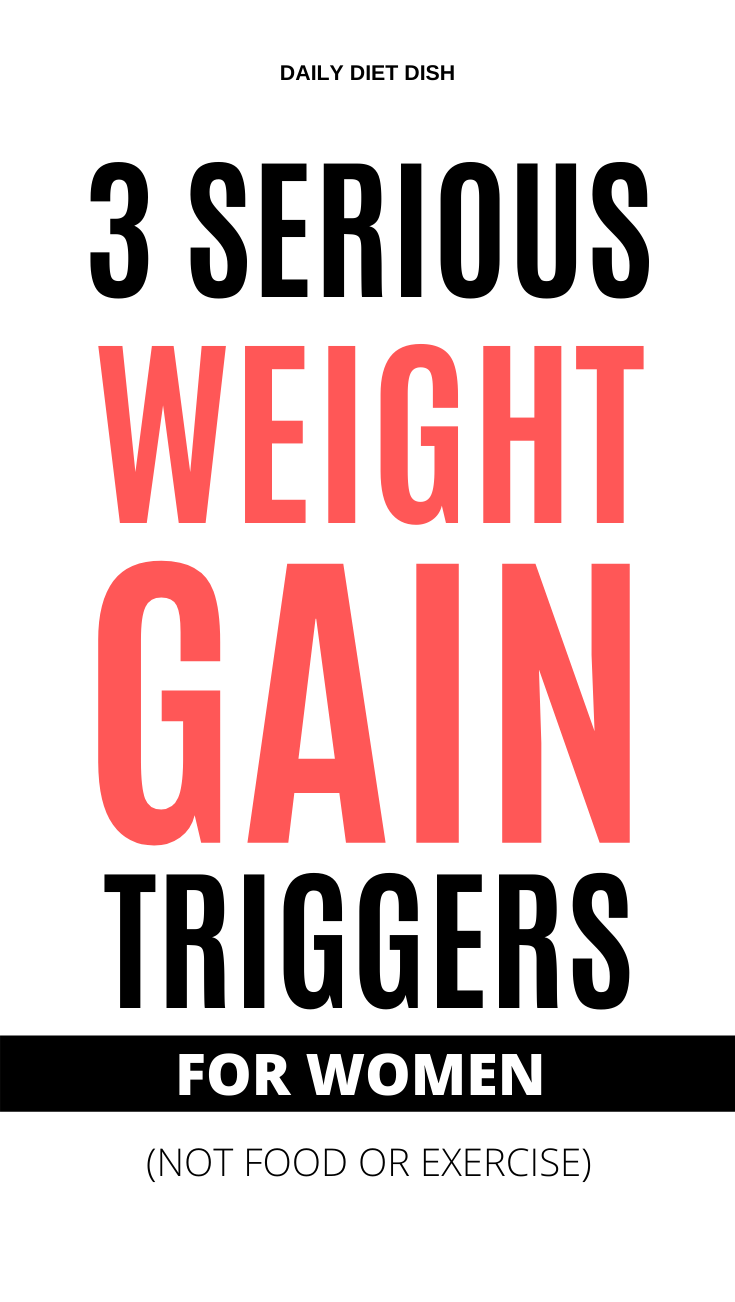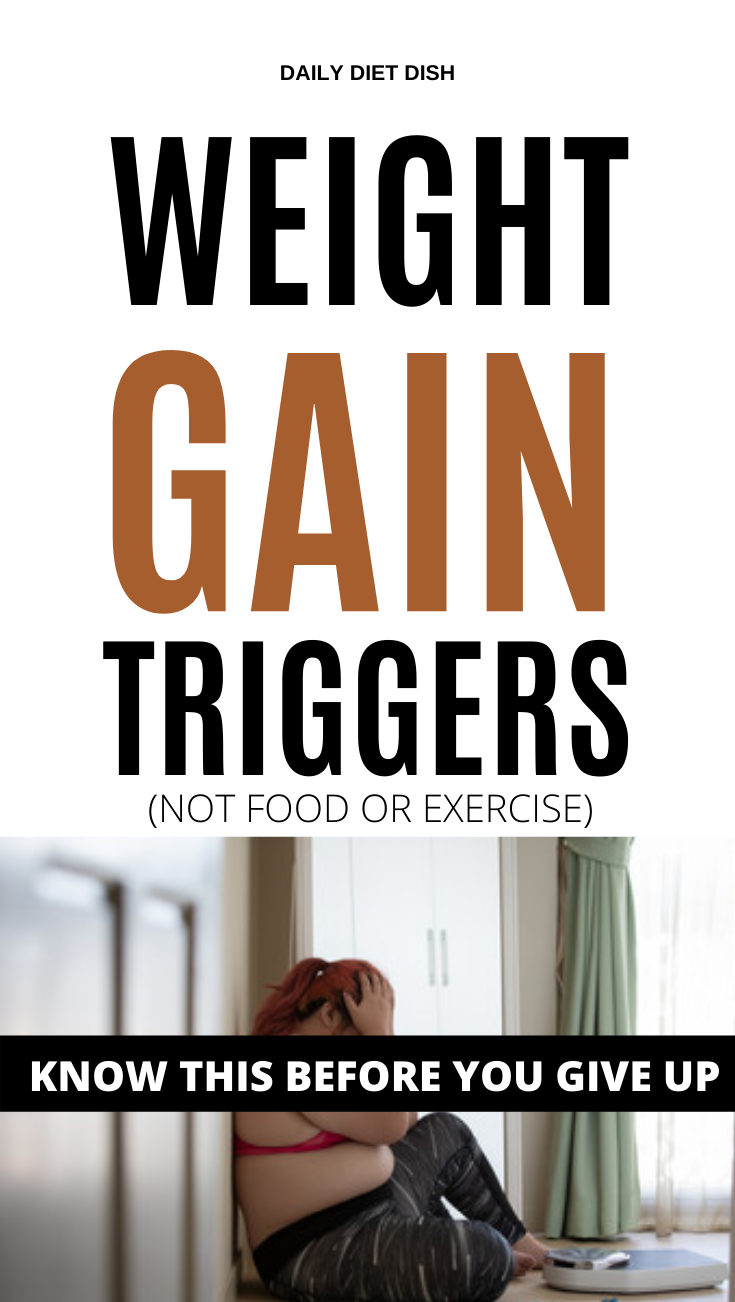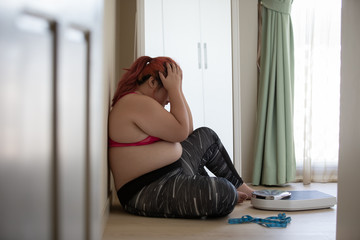Many people will say that weight loss is as simple as eating less and exercising more. But there are thousands of women who have worked out and dieted religiously, only to see the same numbers on the scale. There are also women who lose weight just to gain it all back in a short period of time.
Weight Gain Has Many Causes
If you are a woman over 20, you are susceptible to gaining weight for many reasons. For some of us, it is a combination of lifestyle choices and the foods we eat. For others, it’s a more complex issue that includes how your body operates rather than what it operates on.
Once you are able to identify your weight gain trigger, there are multiple ways that you can start to limit them.
Read: What is Deep Fat & How To Fix It
1. Unbalanced Hormones
Almost every system in our body is regulated by our hormones. Weight loss can be directly and indirectly affected by:
- Ghrelin (hunger hormone)
- Insulin (sugar hormone)
- Leptin (satiety hormone)
- Estrogen (female reproductive hormone)
- Cortisol (stress hormone)
Hormone imbalances are the most common cause for women to gain weight.
The high stress levels that we experience daily sometimes leads to emotional eating. That affects the way our bodies hold on to fat, especially in certain areas like our legs and arms.
Many women also use hormonal birth control that affect the way we gain/lose weight.
As it relates specifically to weight gain, you can know if your weight is caused by hormones if you experience certain symptoms.
How To Know If Your Weight Gain Is Caused By Hormones
- You are highly stressed and frantic on most days despite your desire to stop it.
- You tend to gain more weight than usual in your stomach region and get bloated very easily
- You are addicted to sweets and sugary foods
- You gained weight really quickly, and this may or may not be triggered by birth control
- You have thyroid problems
- You are doing everything ‘right’ but still can’t see any results after a couple weeks or months
Solution: Do a Hormone Reset
Women who experience hormonal imbalances may benefit from The Hormone Reset Diet. This program really educates you on the roles of over 9 important hormones and helps you to eliminate certain foods until you see what your body is struggling with.
In the process of doing this you can lose up to 15 (or more) pounds in 21 days.

2. Carbohydrate Intolerance
Carbs have been a major issue for many women trying to lose weight. In fact, it has been blamed for the cause of obesity in the US.
Our bodies need carbohydrates but it’s so easy to consume too many carbs since the tastiest snacks, beverages and desserts all contain a high amount of carbs. (Is it really necessary for an 8 oz drink to have over 30g of sugar?)
Some people suffer from gluten or lactose intolerance, but carb intolerance is something many of us experience without being aware of it.
Carbohydrate intolerance is when you have the following symptoms after eating carbs:
- bloating
- indigestion
- pain
- flatulence
- fatigue or sleepiness
Your body isn’t able to metabolize carbs correctly so it adds additional stress to your intestines and liver, and the excess carbs is eventually turned into fat stores. [1]
What To Do About It
If you think you might be carb intolerant, there are some things you can do to help your body and lose weight in the process.
1- Eat less processed carbs
2- Be aware of how you feel within 4 hours of eating carbs- are you tired? lethargic? bloated?
3- Remember you don’t need carbs at every meal
4- Start a Keto diet to lose weight on a low carb diet
5- Start carb cycling
Healthy Carbs To Start Eating
The best sources of carbohydrates are fruits, vegetables, nuts and grains. Our bodies process those natural foods a lot easier and they have a high amount of fiber.
Here’s a list of the best low carb foods.
3. Slow Metabolism
Your metabolism is the rate that your body breaks down food to use for energy. You’ve probably heard of people with ‘fast metabolisms’ who can eat anything without gaining weight.
On the other hand, there are also people who count calories all day but their metabolism is too slow to reach their weight loss goals.
The rate of your metabolism really depends on how much energy your body needs to function, your daily activities, and how often you exercise. Some people will burn less calories than others while doing the exact same things.
What to know about a slow metabolism
If you are working with a slow metabolism, exercise and nutrient dense foods are your best friends.
You can also build your metabolism by gaining more muscle mass. This is because your muscles use more energy even when they are relaxed. This means you can improve your metabolism by lifting weights (don’t worry, you don’t have to get super defined to reap the benefits of this).
Remember that a huge part of your metabolism is inherited, so work with a dietitian (or do as much research as possible) to create a healthy diet and exercise plan.
Related: 5 Things A Woman Should Know about Her Body


